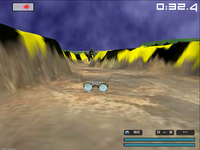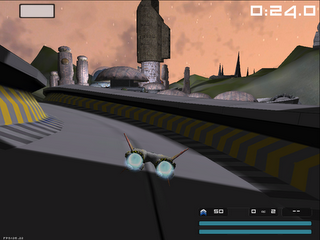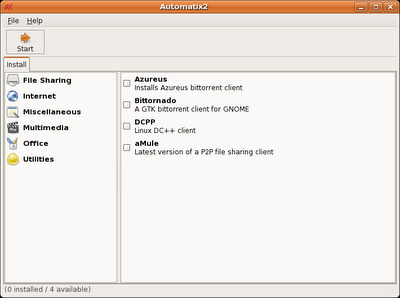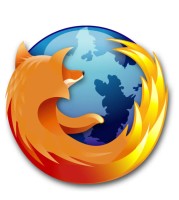2009: Year of the Linux Handheld?
A common inside joke on Slashdot is the "Year of the Linux Desktop", a revelation about each upcoming year being the mythical time when Linux will obtain wide-scale adoption on desktop PCs. Although the number of PCs running Linux has increased each year, a new emergent trend is that Linux is becoming a popular on more consumer handheld devices.
The reason for Linux's rise in popularity on cellphones is that cell manufacturers (Eg. Motorola) are being forced to ditch their simpler, proprietary operating systems that run on the "dumbphones" they sell because a more powerful operating system is needed to handle better multitasking and internet connectivity. Windows Mobile has been a popular pick with manufacturers because it meets the needs of smartphones, but the licensing costs are enough to make manufacturers like HTC experiment with other platforms, like they did with Google's Android on their HTC G1.
Similarly, Palm has just announced their brand new Pre smartphone, which just so happens to be powered by Linux. Palm's "OS 2.0" (or WebOS, as it is now known as) has been in the works for as long as anyone can remember, and if you check out Engadget's videos of the Pre, you'll find out just how hard they were working.
With the devices like the Palm Pre and the upcoming swath of Android phones, 2009 might be the year that Linux starts challenging Microsoft's dominance in the smartphone arena. At the same time, it will be interesting to see how Linux holds up in the ongoing netbook race as well.
If devices like the Asus Eee PC continue to ship with Linux, it would not be surprising if Microsoft started offering manufacturers crippled versions of Vista for netbooks at a significantly discounted price. If Microsoft were to do that, I think we'd see Linux's market share on netbooks decline because a crippled Vista would be easier for average Joe to use for email/web/IM than Linux and the cost advantage of Linux would not be as good. Still, Microsoft already missed the boat with netbooks - There is no Windows Vista Netbook Edition, as there needed to have been early last year in order for Microsoft to have crushed Linux on netbooks. Instead, manufacturers found that companies like Xandros were willing to provide small, fast, and flexible Linux distributions to meet the needs of their netbook target audience, while Microsoft wasn't interested. This was undoubtedly a good thing for Linux adoption.
 The Linux-powered Pandora gaming handheld is due out in Q1 2009. (Yes, this render looks like it was made in 3D Studio Max circa 1998...)
The Linux-powered Pandora gaming handheld is due out in Q1 2009. (Yes, this render looks like it was made in 3D Studio Max circa 1998...)In 2009, Linux will also see interesting applications in devices like the Pandora gaming handheld (a spiritual successor to the GP2X). A 600 MHz ARM processor, 800x480 screen, 802.11g, Bluetooth, USB 2.0 host, and a purported 10 hours of battery life - This handheld sounds like a gamer's dream.
However, the success of any handheld device hinges on one thing being done superbly well; Software, software, software. If the games for Pandora are bad, not even hackability can save it. If the software on the Palm Pre turns out to be garbage, same fate. One can start to see a pattern emerging though - Linux has been successful on netbooks because the software stack of Firefox/Thunderbird/Pidgin is rock solid. The software that tackles the primary use cases of netbooks is fantastic (largely in part because Firefox, Thunderbird, and Pidgin are simply mature, well-run software projects). The tricky part with Pandora is that its primary use-case (gaming) does not have a fantastic stack of off-the-shelf open source software to run, perhaps beyond emulators. No offense, but Supertux isn't exactly what I'd like to be playing on Pandora.
There is nothing magical about running Linux that will make a device better for end-users. It can cut down development and licensing costs, but ultimately the fate of Linux on handhelds in 2009 will come down to the quality of the software that runs on it. Let's hope it goes better than last year.

 If I were a developer looking to write a new application on Linux,
If I were a developer looking to write a new application on Linux,  What desktop Linux appears to have is a plethora of organizations acting independently (creating libraries, etc.), with no clear cross-organization leadership. Freedesktop.org has been successful in getting many of these organizations to cooperate and has undoubtably resulted in an improved desktop Linux (see
What desktop Linux appears to have is a plethora of organizations acting independently (creating libraries, etc.), with no clear cross-organization leadership. Freedesktop.org has been successful in getting many of these organizations to cooperate and has undoubtably resulted in an improved desktop Linux (see 





 I was doing my daily read of
I was doing my daily read of 



















